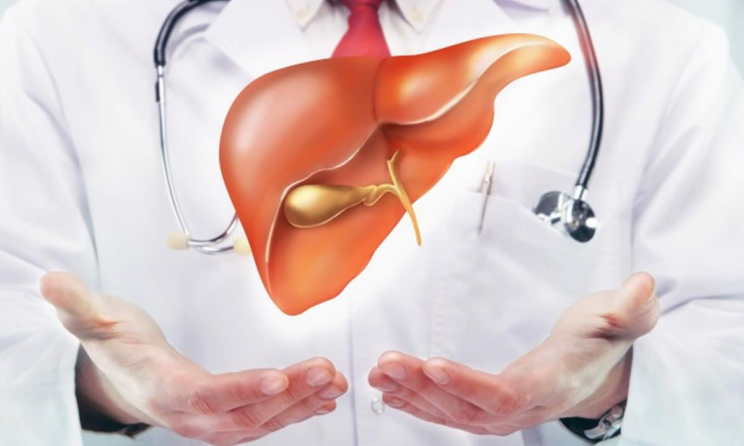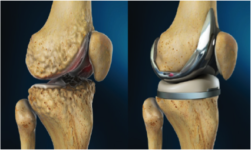
A liver transplant is a life-saving procedure for individuals suffering from severe liver diseases. There are certain liver conditions where a transplant becomes the only option for survival. Understanding the conditions and criteria for liver transplants is essential for those suffering from chronic liver diseases.
This guide explores the conditions that may require a liver transplant in Delhi, the criteria for eligibility, and the importance of early detection.
1. Chronic Liver Disease
Chronic liver diseases are among the leading causes of liver failure. Conditions such as chronic hepatitis B and hepatitis C can cause long-term liver damage, eventually leading to cirrhosis (scarring of the liver). When the liver becomes severely damaged and loses its ability to function properly, a liver transplant may become necessary. A liver transplant in Delhi can offer a new lease on life for patients with advanced liver disease who are no longer responding to other forms of treatment.
2. Cirrhosis of the Liver
Cirrhosis is the result of long-term liver damage from various causes such as alcohol abuse, viral hepatitis, or fatty liver disease. As cirrhosis progresses, the liver tissue becomes scarred and unable to function. Symptoms may include jaundice, fatigue, swelling, and gastrointestinal bleeding. If cirrhosis leads to liver failure, a liver transplant may be the only treatment option to restore liver function and prolong life.
3. Liver Cancer (Hepatocellular Carcinoma)
Liver cancer, specifically hepatocellular carcinoma (HCC), is a primary liver cancer that can develop as a complication of cirrhosis or chronic hepatitis. If the cancer is confined to the liver and has not spread to other organs, a liver transplant may be considered. In patients with HCC, the transplant not only removes the cancerous liver but also replaces the underlying damaged liver, offering a chance for a longer, healthier life. Strict criteria must be met for eligibility, and early detection is critical for successful outcomes.
4. Acute Liver Failure
Acute liver failure occurs when the liver suddenly loses its ability to function, often due to drug toxicity, viral infections, or autoimmune diseases. This rapid decline in liver function can lead to severe complications such as bleeding, encephalopathy (brain dysfunction), and kidney failure. Acute liver failure requires immediate medical attention, and if the liver is unable to recover, a liver transplant in Delhi may be necessary to save the patient’s life. In such cases, transplant eligibility is determined based on the severity of liver dysfunction.
5. Fatty Liver Disease (NAFLD/NASH)
Non-alcoholic fatty liver disease (NAFLD) and non-alcoholic steatohepatitis (NASH) are increasingly common liver conditions, often associated with obesity, diabetes, and metabolic syndrome. Over time, these conditions can progress to cirrhosis and liver failure. If the liver damage becomes irreversible, a liver transplant may be recommended to treat end-stage liver disease. A liver transplant can provide a life-saving solution for individuals whose liver is no longer capable of performing essential functions.
6. Genetic Disorders Affecting the Liver
Certain genetic disorders, such as Wilson’s disease, hemochromatosis, and alpha-1 antitrypsin deficiency, can cause severe liver damage over time. These conditions may lead to cirrhosis, liver failure, and the need for a transplant. A liver transplant may be the only option to replace a liver damaged by these inherited conditions. Genetic testing can help diagnose these disorders early, potentially delaying the need for a transplant or providing alternative treatments.
7. Liver Disease Due to Alcohol Use
Chronic alcohol abuse is a leading cause of liver disease worldwide, resulting in conditions such as alcoholic hepatitis and cirrhosis. In severe cases, the liver becomes so damaged that a liver transplant is the only solution. Patients with liver disease due to alcohol must meet specific criteria, including evidence of sustained sobriety before being considered for a transplant. Liver transplant centres require patients to demonstrate that they are committed to long-term recovery and lifestyle changes.
8. Biliary Atresia in Infants and Children
Biliary atresia is a rare liver disease found in infants, where the bile ducts become blocked or damaged, leading to liver failure. If not treated early, biliary atresia can cause irreversible liver damage and necessitate a liver transplant. In cases of biliary atresia, the liver transplant must be performed in early childhood to avoid complications and provide the child with a healthy, functioning liver. A liver transplant in Delhi offers advanced pediatric care for children suffering from this life-threatening condition.
9. Primary Sclerosing Cholangitis (PSC)
PSC is a chronic liver disease that affects the bile ducts, leading to scarring and cirrhosis. It is often associated with inflammatory bowel disease (IBD), particularly ulcerative colitis. As the disease progresses, the liver becomes unable to remove toxins from the body, leading to liver failure. In the later stages of PSC, a liver transplant may be necessary to prevent further complications. A liver transplant in Delhi can offer patients with PSC a chance to restore liver function and improve their quality of life.
Criteria for Liver Transplant Eligibility
Not all patients with liver disease are eligible for a liver transplant. The criteria for eligibility vary, but some general factors include:
- The severity of liver disease: The patient must have end-stage liver disease, typically diagnosed through tests such as the Model for End-Stage Liver Disease (MELD) score or Child-Pugh score.
- Age and overall health: Younger patients with fewer comorbidities (other health conditions) are more likely to be eligible for a transplant.
- Absence of contraindications: Patients with active cancer (other than liver cancer), severe heart disease, or ongoing infections may not be considered candidates for transplant.
- Psychosocial factors: A strong support system and the ability to follow post-transplant care protocols are essential for a successful outcome.
Know more about : Care After Successful Liver Transplant Surgery and Precautions
Conclusion
A liver transplant in Delhi can be a life-saving procedure for patients suffering from chronic liver diseases, liver cancer, or acute liver failure. Consulting with a specialised liver transplant from the BLK-Max Super Speciality Hospital to get the best treatment.
If you or a loved one is facing liver disease, early consultation with a leading liver transplant specialist can help determine the most appropriate course of action to ensure the best possible outcome.






